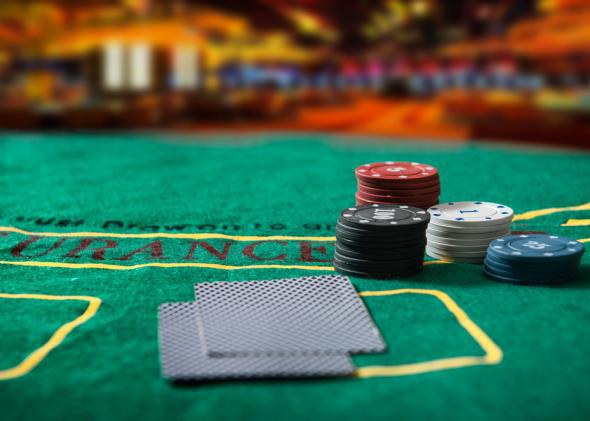The University of Alberta made headlines earlier this year when professor Michael Bowling and his team unveiled the “unbeatable” Cepheus Poker Project to the general public. I’m not one to shy away from a challenge, and I’m an avid poker player, so I rolled up my sleeves and faced off against it. It did not go as I had expected.
Cepheus is a computer program that has drawn strategic conclusions on limit hold ’em poker, analyzing more hands than the collective human race has ever played as a whole. It was refined for months, formulating optimal play in every aspect of the game. The algorithms and methodology of the Cepheus Project have potential applications in medicine, cybersecurity, marketing, and other avenues of game theory, so this development should excite even the nonpoker crowd.
Bowling told me in an email, “Interesting real life problems are about dealing with uncertainty: uncertainty about what chance might bring in the future, uncertainty about how other people might respond to your decisions, and uncertainty about what you don’t know. Real life is not like chess. Real life is like a poker game. This makes poker an ideal proving ground for advancing the state of the art in artificial intelligence. And [Cepheus] represents a milestone in the advancement of AI.” (Future Tense’s Lily Hay Newman had discussed Cepheus’ real-world applications.)
I played against Cepheus online and won both 100-hand matches in blind-squirrel fashion. Cepheus is “unbeatable” though, so what happened? In this case, “unbeatable” doesn’t mean the program will win every hand or even most hands. Rather, it’s a long-term edge that we never get to fully observe. It’s a reminder that the breadth of artificial intelligence can be subjective and situational instead of absolute.
I played 200 hands versus Cepheus, a very insignificant sample size in poker. Many top online professional poker players have experienced a 100,000-hand break-even streak at some point in their careers. Says Bowling, “Using simple normal distributions … the probability of being ahead [of Cepheus] after 100 hands is 46 percent. After 30,000 hands the probability of winning is down to 5 percent, so still 1-in-20 people would think they were the better player after 30,000 hands.”
For most, the minutiae of poker theory are virtually inscrutable. It would take forever to discern, like staring at a Rubik’s Cube and trying to spot which stickers are switched. You could do it, given an abundance of time, but it wouldn’t be easy or fun without a computer. That’s the essence of Cepheus: Imagine a spectrum of starting hands ranked by strength. A player is perpetually trying to figure out where he stands, and all decisions are based on these approximations. Cepheus has decision-tree protocol lined up for every inflection point already.
There are billions of possible combos in a hand, and the program will analyze how its holding fares against an updated range of hands. No person could perfectly optimize this process. Most humans can barely fathom the chance and skill components of a critical situation with any sense of the big picture, often misattributing results with decisions and vice versa. In poker this happens a lot.
Says Bowling: “This plays strongly into one of our disturbing cognitive biases: attributing our success to our own skill, and our failures to bad luck. And this isn’t just an issue for poker players—everything from athlete evaluation to CEO performance suffers from the same bias. We want to believe the winners win on their merits, and not just being dealt better cards. True randomness is far more random than we expect. A series of apparently brilliant decisions may just be the result of someone being bound to get that lucky.”
Luckily poker in its observable form is unscripted—any hand can unfold any which way. The program’s appraisal can’t prevail every instance, even though its perception is theoretically near perfect. That’s not a knock on Cepheus but a comment on the nature of real-life problem solving at large. Poker too has gray areas, which keeps it fun. Battling the robot was more of an artistic vignette than a serious endeavor.
To call limit hold ’em “solved” diminishes the essence of poker. A random person can beat Cepheus even just by accident a decent portion of the time. Against an elite player, the program might eke out minimum wage, just enough to cover the electric bill.
The psyche, meanwhile, is where poker’s true luster resides. It’s what humans rely on in lieu of the insurmountable calculations. It’s not entirely allegorical: We maneuver through life by making selective snap judgments. What really brings the game of poker to life is the human element: patience, prudence, suspicion, instinct. Computers can reason through tough decisions, and Cepheus reinforces the quantifiable nature of certain human endeavors. But poker’s specific beauty is the instinctive part. That is where the best poker is derived from, raw and poetic and inexplicable. The same goes for most decisions in life.
Cepheus may best me the next time we play, but it will never enjoy the thrills and nuances of the game the way I can. So perhaps I’m still the winner in the long run.
